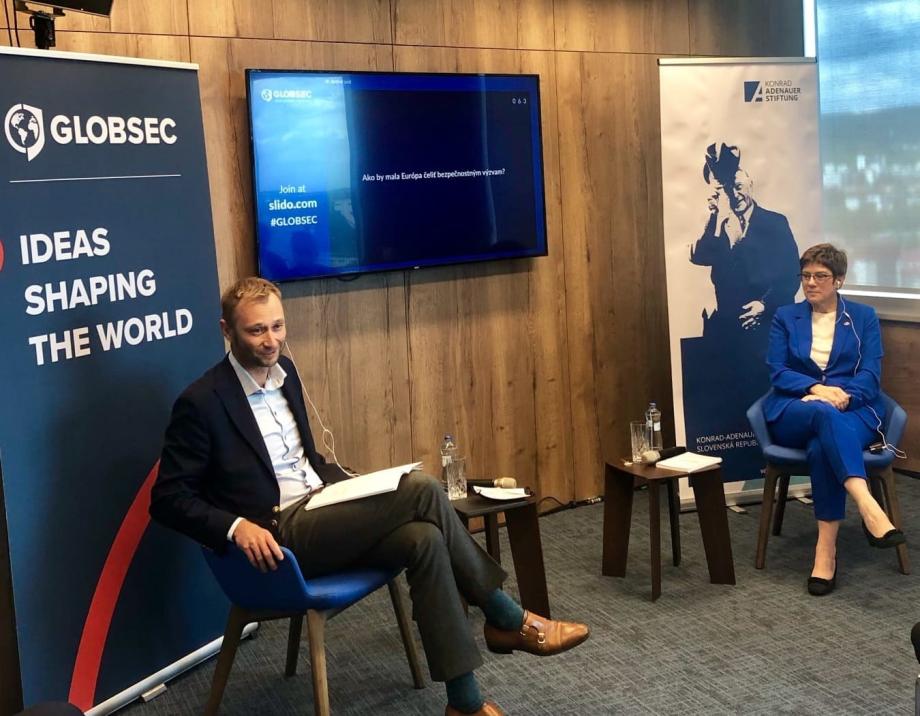How Should Europe Face Current Security Challenges?

On July 17, 2020, GLOBSEC, in cooperation with the Konrad-Adenauer-Stiftung, had the pleasure to welcome Ms Annegret Kramp-Karrenbauer, the Federal Minister of Defence of Germany, in Bratislava. On this occasion, GLOBSEC organized a discussion with Ms Kramp-Karrenbauer for students and young experts, who had the opportunity to discuss topics related to European security.
The discussion took place on GLOBSEC’s premises and was part of Ms Kramp-Karrenbauer’s official visit to the Slovak Republic. More than 30 in-person participants and 40 attendees joining the discussion via ZOOM had a unique opportunity to debate subjects such as current European security policies, future security threats in light of the COVID-19 pandemic and other relevant topics. Representatives of the Ministry of Foreign and European Affairs of the Slovak Republic, Ministry of Defence of the Slovak Republic and, last but not least, H.E. Joachim Bleicker, Ambassador of the Federal Republic of Germany to Slovakia, attended the event as well. The new head of the Konrad-Adenauer-Stiftung Office for the Czech Republic and the Slovak Republic, Tomislav Delinić, opened the discussion, chaired by Robert Vass, president and founder of GLOBSEC.
Defence and security should be seen as one of the most important pillars of each state. With this in mind, we were honoured to once again cooperate with the Konrad-Adenauer-Stiftung to create a platform for meaningful discussion on defence and security-related topics with the Minister of Defence of Germany.
Moreover, the demand for innovative and constructive opinions is rapidly increasing in terms of this difficult period. Considering this need, we were happy to host Slovak university students and young experts and hear their suggestions and statements on current and future security challenges. If Europe wants to overcome this crisis, it will be necessary to engage the younger generation as well.
Taking into account that Slovakia is a rather small country situated in the Central European region, there is no other guarantee of security than its active membership in NATO and the European Union, which goes hand in hand with cooperation with partner countries within Euro-Atlantic structures. Ms Kramp-Karrenbauer’s visit to Slovakia had symbolic significance, as it took place exactly one year after she was appointed as Germany’s Federal Minister of Defence. Since then, global security has been critically affected and changed by the COVID-19 pandemic, which introduced a new, unprecedented and multidimensional global threat. Various experts consensually point out that global security will never be the same after the coronavirus crisis, as humanity is faced with the need to adapt to new biological threats.
As it was agreed upon during the discussion, “COVID-19 has accelerated many trends in the field of international relations that were noticeable even before the pandemic, yet the crisis only made them stronger and more significant.‘‘ The crisis of multilateralism, the crisis in transatlantic relations, the growing foreign influence of China and Russia, or a growing “infodemic” are among the best examples. For Euro-Atlantic society, it is now crucial to stay united and be able to deal with new security challenges together.